Iran-Saudi deal throws ‘cold water’ on Netanyahu’s plans, shakes up Mideast: US media
A US media report says the détente between Iran and Saudi Arabia has dealt a heavy blow to Israeli prime minister Benjamin Netanyahu, who had sought a fearmongering campaign against Tehran’s nuclear program and the Islamic Republic’s clout in West Asia.
In a report published on Saturday, the Associated Press called the recent round of negotiations in China that culminated in the restoration of Iran and Saudi Arabia ties, a “breakthrough” which exposed the Israeli regime’s divisions, as national turmoil surges over controversial judicial reforms put forward by the right-wing coalition cabinet of Netanyahu.
It added that the agreement, which gives Iran and Saudi Arabia two months to reopen their respective embassies and re-establish ties after seven years of estrangement, is one of the most “striking shifts” in Middle Eastern diplomacy over recent years and stirred “cautious optimism” in the region.
It has caused “disappointment” and “finger-pointing” in Israeli political circles, the report said.
The report added that while Netanyahu had made foreign policy boasts about the US-brokered so-called “normalization deals” with United Arab Emirates, Bahrain, Morocco, and Sudan in 2020, and advertised them as part of a wider push to stand up against Iran’s influence in the region, Saudi Arabia’s decision to engage with Iran has “thrown cold water on those ambitions.”
Netanyahu had entertained the hopes that a normalization deal with Saudi Arabia would enable the Tel Aviv regime to reshape the region and boost Israel’s standing in historic ways.
However, despite increased “backdoor relations” between Israel and Saudi Arabia, Riyadh claims that it is committed to the 2002 so-called Arab Peace Initiative, which conditions normalizing ties with Tel Aviv on the establishment of an independent, sovereign Palestinian state within the 1967 borders.
Accordingly, the report said Iran and Saudi Arabia's rapprochement has left Israel “largely alone” in its futile attempts for diplomatic isolation of Iran and threats of a unilateral military strike against Iran’s nuclear facilities.
The Israeli prime minister has described himself as fiercely opposed to Tehran’s civilian nuclear program as well as its regional alliances with Lebanese and Palestinian resistance movements, like Hezbollah in Lebanon and Hamas in the Gaza Strip.
Yoel Guzansky, an expert on the Persian Gulf at the Institute for National Security Studies, an Israeli think tank, said that the restoration of ties between Iran and Suadi Arabia is “a blow to Israel’s notion and efforts in recent years to try to form an anti-Iran bloc in the region.”
“If you see the Middle East as a zero-sum game, a diplomatic win for Iran is very bad news for Israel,” he added.
Danny Danon, a Netanyahu ally and former Israeli ambassador to the United Nations who recently predicted a peace agreement with Saudi Arabia in 2023, seemed disconcerted.
“This is not supporting our efforts,” he said, when asked about whether the rapprochement hurt chances for the kingdom’s recognition of Israel.
Moreover, Israeli opposition politicians have seized on the rapprochement between Riyadh and Tehran to criticize Netanyahu, accusing him of focusing on his personal agenda at the expense of Israel’s international relations.
Yair Lapid, former prime minister and head of Israel’s opposition, denounced the agreement between the two regional powerhouses as “a full and dangerous failure of Israel’s foreign policy.”
“This is what happens when you deal with legal madness all day instead of doing the job with Iran and strengthening relations with the US,” he wrote on Twitter.
Even Yuli Edelstein from Netanyahu’s Likud party blamed Israel’s “power struggles and head-butting” for distracting the regime from its more pressing threats.
Another opposition lawmaker, Gideon Saar, mocked Netanyahu’s goal of formal ties with the kingdom. “Netanyahu promised peace with Saudi Arabia,” he wrote on social media. “In the end (Saudi Arabia) did it … with Iran.”
VIDEO | Press TV's news headlines
Araghchi stresses efforts to draft negotiating text between Iran and US
Over 150 ex-diplomats slam French FM's 'disinformation’ about UN’s Albanese
Alawite women abducted and raped, others sold by Jolani's men: Report
Iran, China, Russia hold trilateral talks on Geneva nuclear negotiations
VIDEO | Protests and skepticism greet Trump’s 'Board of Peace'
Envoy to UN: Iran will ‘decisively’ defend itself against aggression
VIDEO | Press TV's news headlines


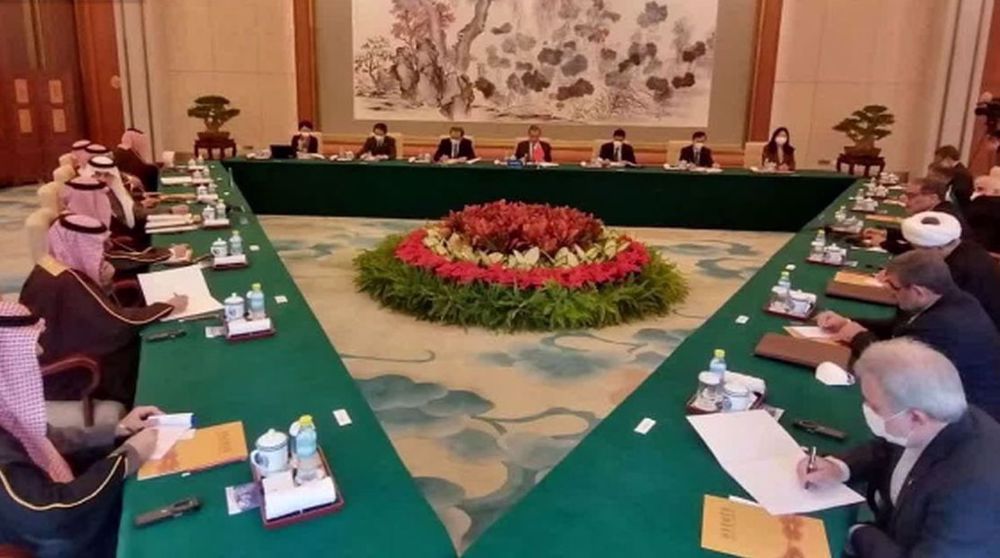
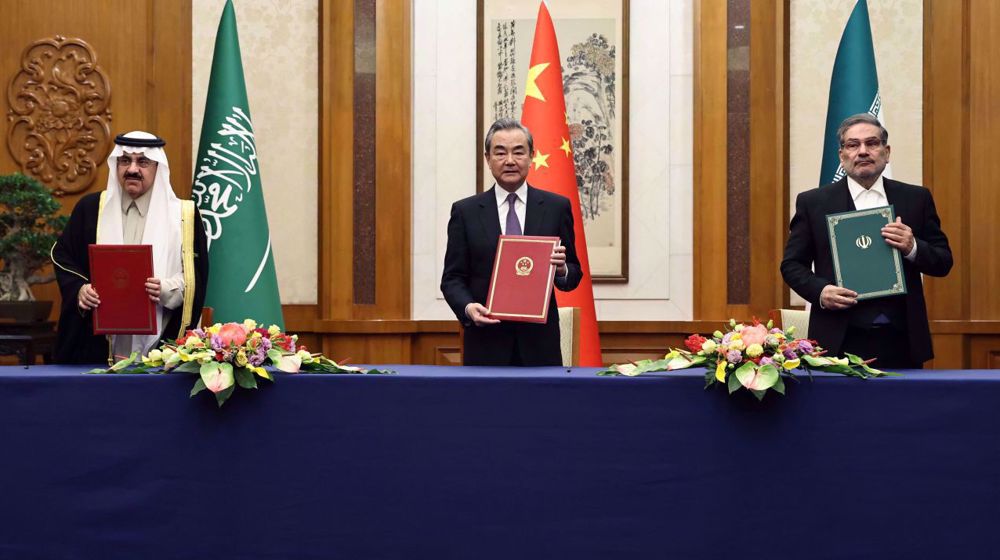
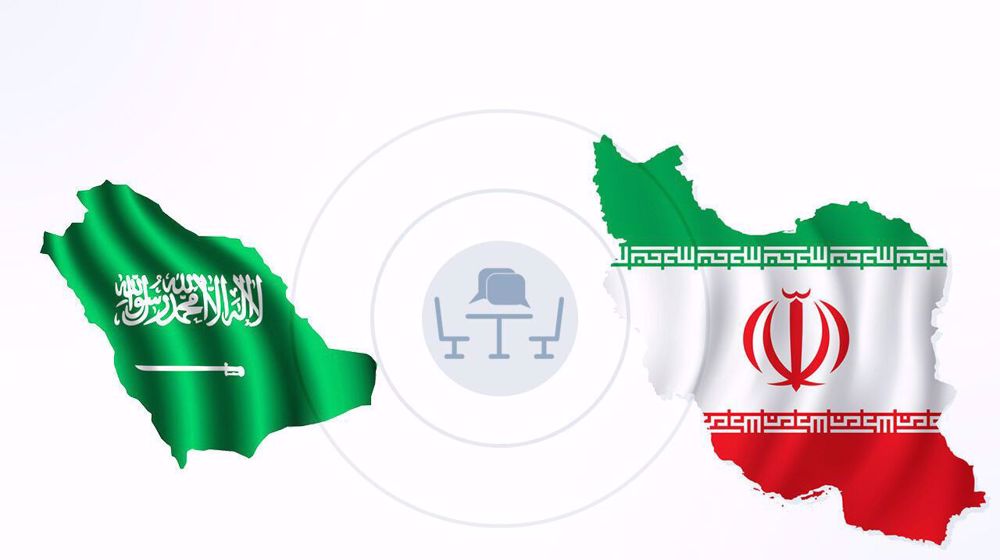
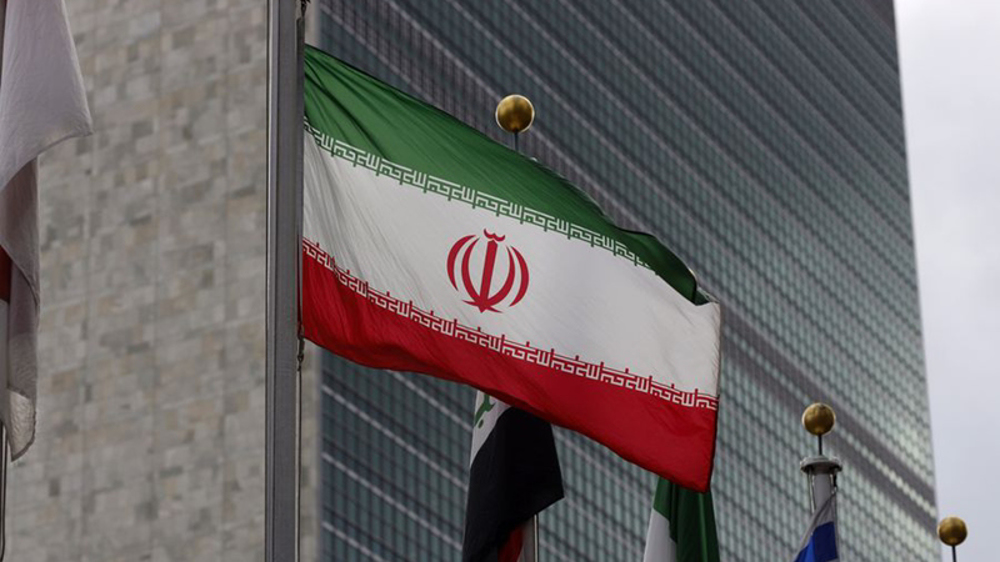
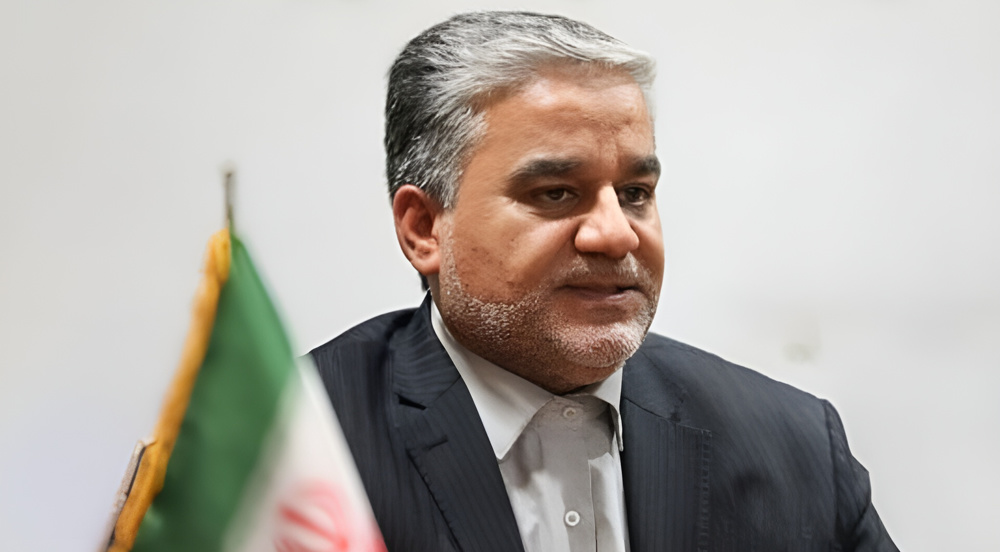
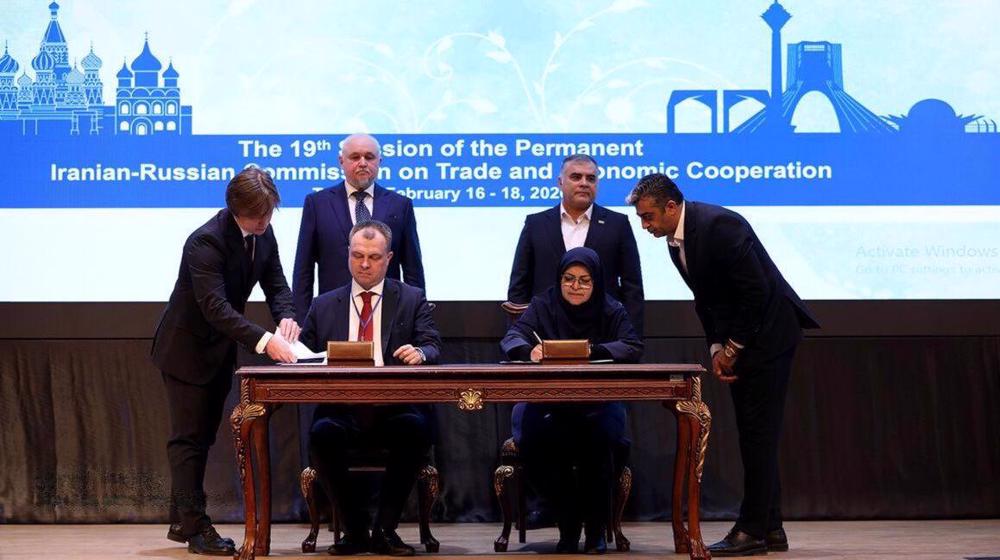



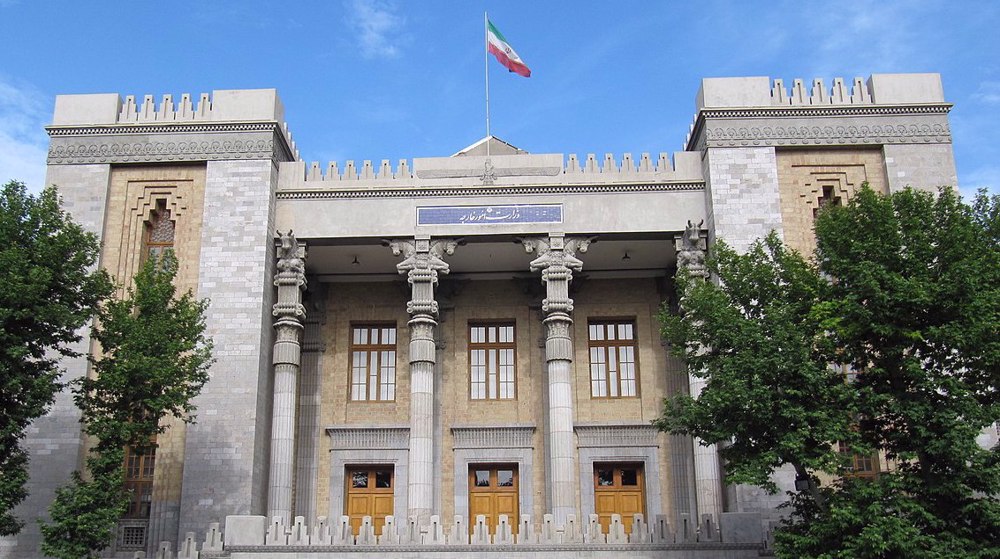
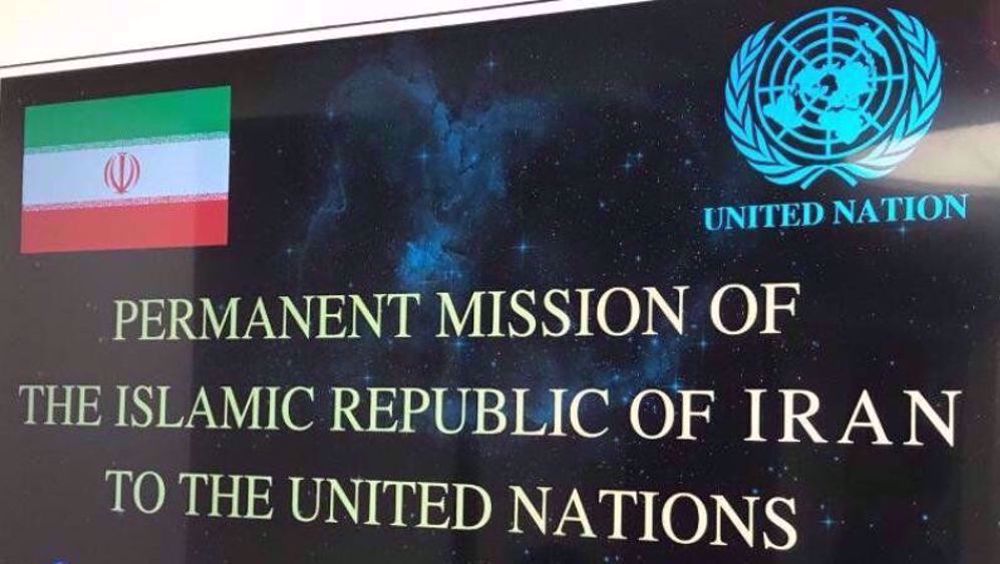
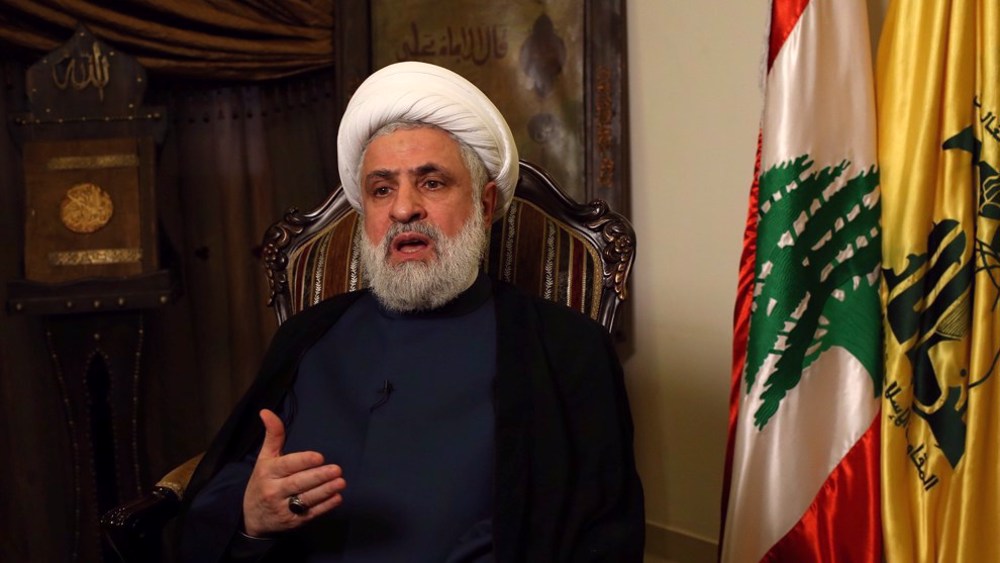
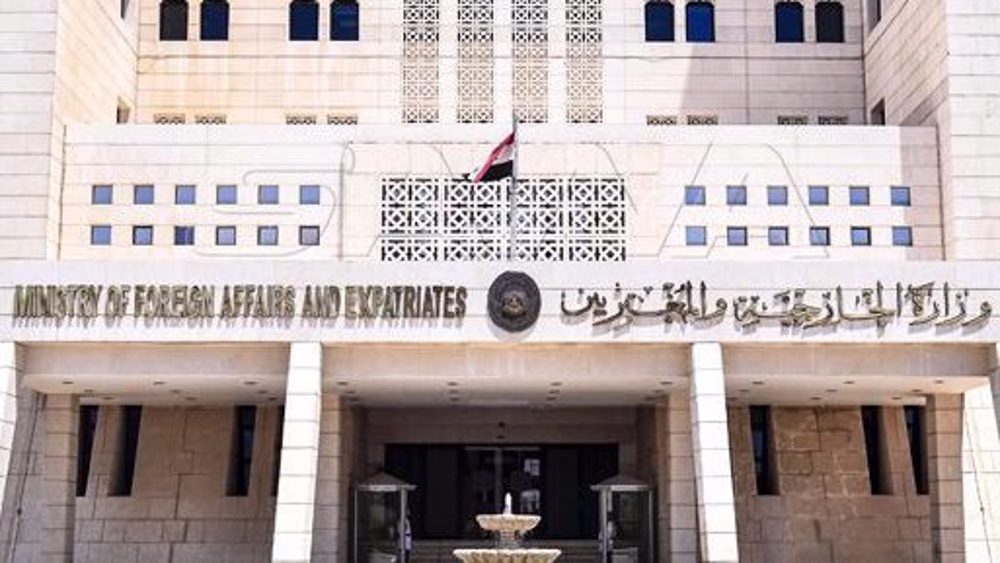
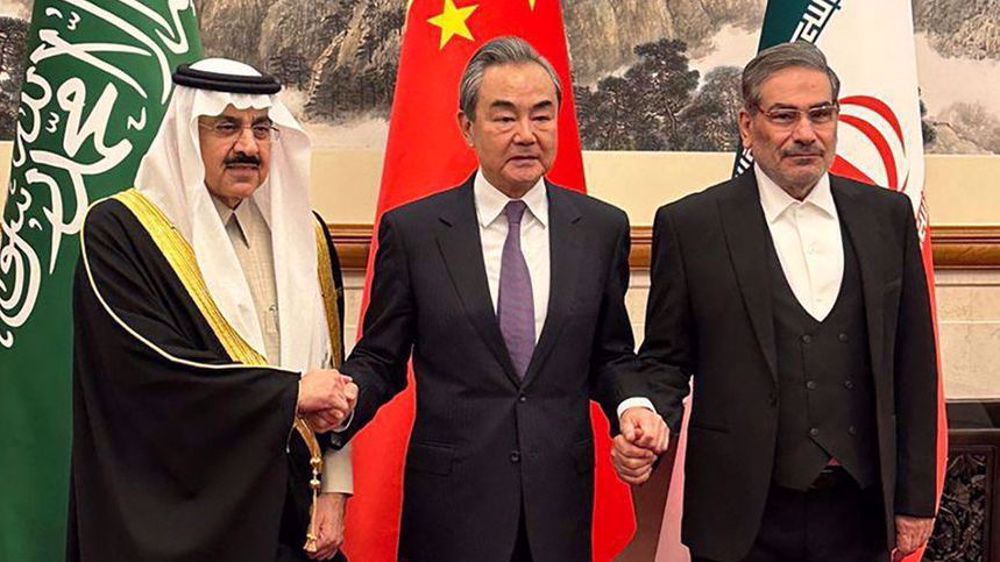
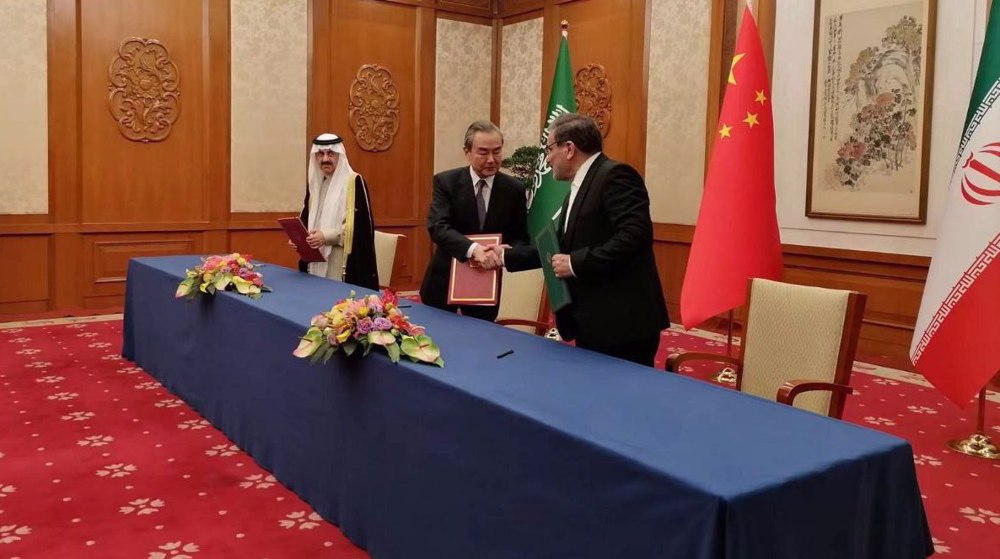

 This makes it easy to access the Press TV website
This makes it easy to access the Press TV website